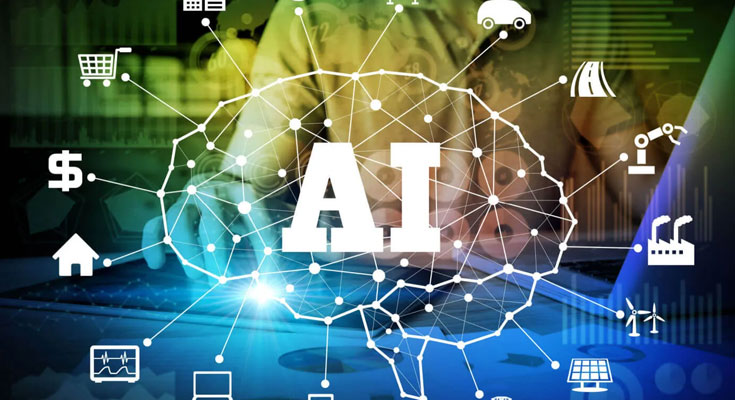Artificial intelligence (AI) has officially graduated from science fiction to daily reality. What once felt like distant speculation is now shaping the way we work, learn, create, and interact. But the future isn’t just approaching—it’s already here, reshaping industries, economies, and even personal habits faster than we imagined.
Below are five powerful ways AI is redefining our present and setting the stage for what comes next.
1. Generative AI Is Changing How We Create Content
In just a few years, generative AI tools have gone from quirky experiments to essential productivity partners. Text generators, image creators, and video synthesis tools are enabling anyone—not just experts—to produce high-quality content in minutes.
Writers are using AI to draft articles, brainstorm ideas, and refine language. Designers can create realistic product mockups without expensive photo shoots. Musicians are experimenting with AI-driven composition. Even filmmakers are leveraging AI for pre-visualization, storyboarding, and editing.
The result? Creative work is becoming more accessible and collaborative. Instead of replacing human imagination, AI acts as a co-pilot—helping creators focus on vision, strategy, and originality rather than repetitive tasks.
2. AI Assistants Are Becoming True Problem-Solvers
Virtual assistants used to feel like glorified search engines. They could answer simple questions or set reminders, but their usefulness was limited. Today’s AI assistants are evolving into sophisticated problem-solvers.
They can summarize long documents in seconds, analyze spreadsheets, manage workflows, and even write or debug code. In medicine, AI systems help doctors review scans to detect issues earlier and with greater accuracy. In finance, AI assistants flag unusual transactions, providing real-time fraud detection.
The shift is profound: we’re moving from tools that merely respond to commands, to partners that anticipate needs, handle complexity, and make informed recommendations.
3. Personalization Is Becoming Hyper-Intelligent
AI’s ability to analyze enormous amounts of data means it can tailor experiences at an individual level. Online shopping platforms predict what you’ll want before you even search for it. Streaming services recommend content with uncanny accuracy. Education technology adapts lessons in real time to match a student’s learning pace.
This hyper-personalization isn’t limited to digital experiences. AI-powered health platforms can analyze biometric data and lifestyle factors to offer individualized diet or fitness plans. Cars with AI-based systems adjust driving modes to match user preferences and even learn routes to optimize commutes.
The future of AI isn’t just about making systems smarter—it’s about making them understand us better.
4. Robotics and Automation Are Accelerating in the Physical World
AI is no longer confined to algorithms and code. Robots, powered by intelligent systems, are working alongside humans in warehouses, hospitals, and even restaurants. Automated delivery drones are being tested in cities. Self-driving vehicles are edging closer to widespread adoption.
Manufacturing plants now use AI-guided robots to streamline production lines, increasing both safety and efficiency. In agriculture, autonomous machines plant and harvest crops with precision, reducing waste and environmental impact.
This isn’t about replacing people; it’s about augmenting human capabilities. AI-powered machines are taking over repetitive, dangerous, or labor-intensive tasks—allowing humans to focus on more strategic and creative work.
5. Ethics and Governance Are Becoming Central Conversations
As AI systems grow more powerful, society is grappling with big questions: How do we ensure AI is fair, transparent, and accountable? Who is responsible when an algorithm makes a bad decision?
Governments, companies, and researchers are already developing frameworks to guide AI development. Ethical AI isn’t just a buzzword—it’s becoming a critical part of how these systems are designed and deployed. Regulations around data privacy, algorithmic bias, and responsible use are taking shape worldwide.
This attention to ethics is encouraging. The future of AI isn’t simply about advancing technology—it’s about making sure it serves humanity as a whole.
So, What Does This Mean for Us Right Now?
The “future of AI” isn’t a distant horizon. It’s embedded in the tools we use, the content we consume, and the decisions businesses make every day. Whether you’re a professional looking to improve productivity, a student exploring new learning methods, or a consumer enjoying personalized services, you’re already benefiting from AI’s impact.
What’s next? Expect AI to become more integrated, more conversational, and more human-aware. It won’t just help us work faster; it will help us work smarter and live better—provided we continue to guide its growth responsibly.
In other words: the age of artificial intelligence isn’t coming. It has arrived. And it’s only getting started.


